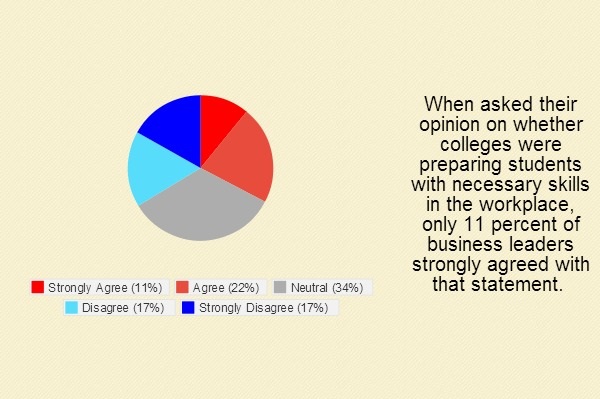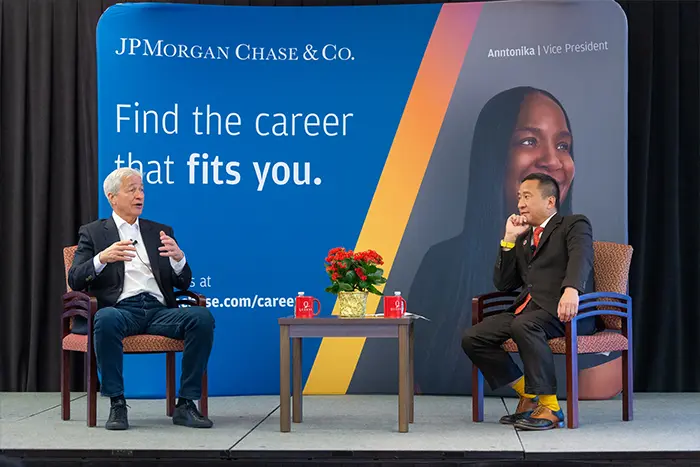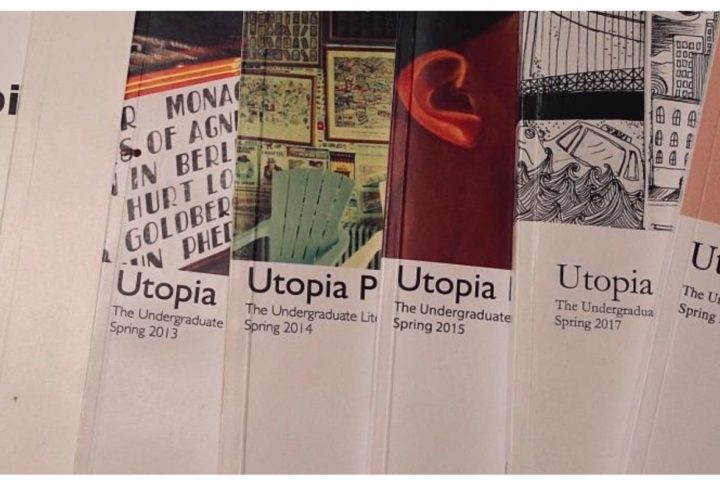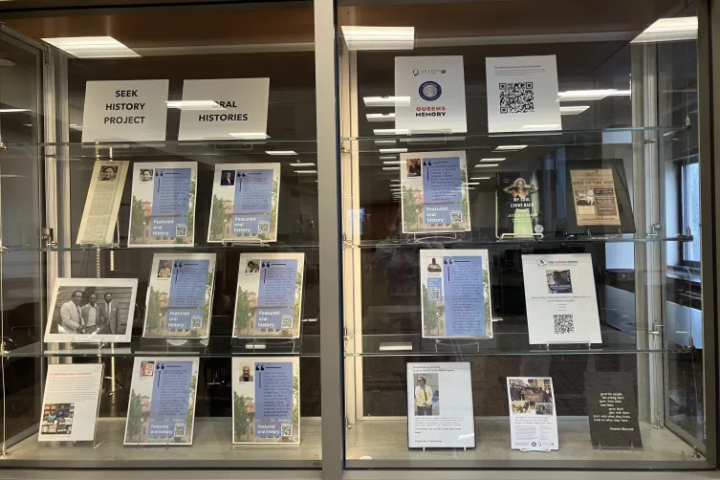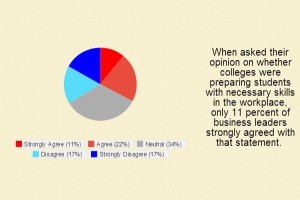
One-third of business leaders agree, higher education prepares college students with skills to join their business, according to a 2013 Lumina Foundation and Gallup report released on Feb. 25.
A business leader, as defined by the report, is an executive from either a small or large business.
Candidates applying for fields where they have extensive knowledge are ideal, with 98 percent of business leaders citing it as an important attribute. However, business leaders doubt higher education has given necessary skills to excel in their enterprise.
“Though a majority of business leaders favor a candidate with a traditional education over someone with an online education, importantly the amount of knowledge and skills a candidate has trump the candidate’s college pedigree and major as key factors in making hiring decisions,” the report said.
Director of career development and internships, Tesfaye Asfaw spoke on the critical skill of experience found in the report. He emphasized employers who approach him are interested in hiring students with such history.
“This finding emphasized experience,” Asfaw said. “I think it’s a valued point. I see this with the employers I work with.”
Asfaw runs an advising service for Queens College students that provides internships, resume building and help to choose a major. Asfaw said more than 800 internships, paid and unpaid, are available for students through the office.
According to its 2013 annual report, 1,816 students — nearly one-fourth of visits — were interested in getting internships in the 2012-2013 academic year.
The report found 22 percent of business leaders were unsure as to what skill should be developed in students. The skill with the most support was internships at 14 percent, followed by communication or writing skills at 12 percent.
Anthony Patti, a 19-year-old sophomore, decided to major in accounting as it “provides a skill necessary for the operation of any business.” While he has not done an internship, he stated education doesn’t provide all essential skills for entering a company.
“I think the job of a college is to provide technical abilities that you can’t learn outside of school. Other requirements, such as social skills and leadership qualities, can be learned elsewhere,” Patti said.
Asfaw remarked education alone doesn’t provide opportunities as experience “makes students more competitive.” Yet, there was importance in attaining a college degree.
“There is always a value to getting a college degree. The only issue raised here is getting a college degree itself may not make a college student competitive,” Asfaw said.
Business leaders are not alone in believing higher education doesn’t prepare students for advancement in the workplace. Only 47 percent of Americans agreed college students “are well-prepared for success in the workplace.” In contrast, according to a 2013 Gallup report of chief academic officers at universities, 96 percent stated their institution prepared students for the workplace.
David Leventhal, a business and liberal arts professor and BALA internship director, also recommended the benefit of experience as it provided success, something he has told students who approach him on resume advice.
“It doesn’t so much matter that all you did for several summers was a camp counselor,” Leventhal said. “If you did it well, they promoted you, they liked you, you were successful and you did the job then that’s going to be valuable for future employers.”
Interestingly, 71 percent of business leaders stated they would hire someone without a post-secondary degree over someone with a degree. Asfaw found this statistic troubling as it lessened the importance of a college degree.
“It discounts the value of higher education. It’s troubling because post-secondary education has to have some kind of value,” Asfaw said.
Patti stated the decision of obtaining a college degree verified a student showing that they have “been properly taught and trained in a given field.” Yet, there was a relationship between higher education and on-the-job knowledge.
“There has to be a relationship between the two. A degree is only awarded once a student has acquired enough knowledge regarding their field,” Patti said. “But only experience can make a person truly knowledgeable in any field.”


